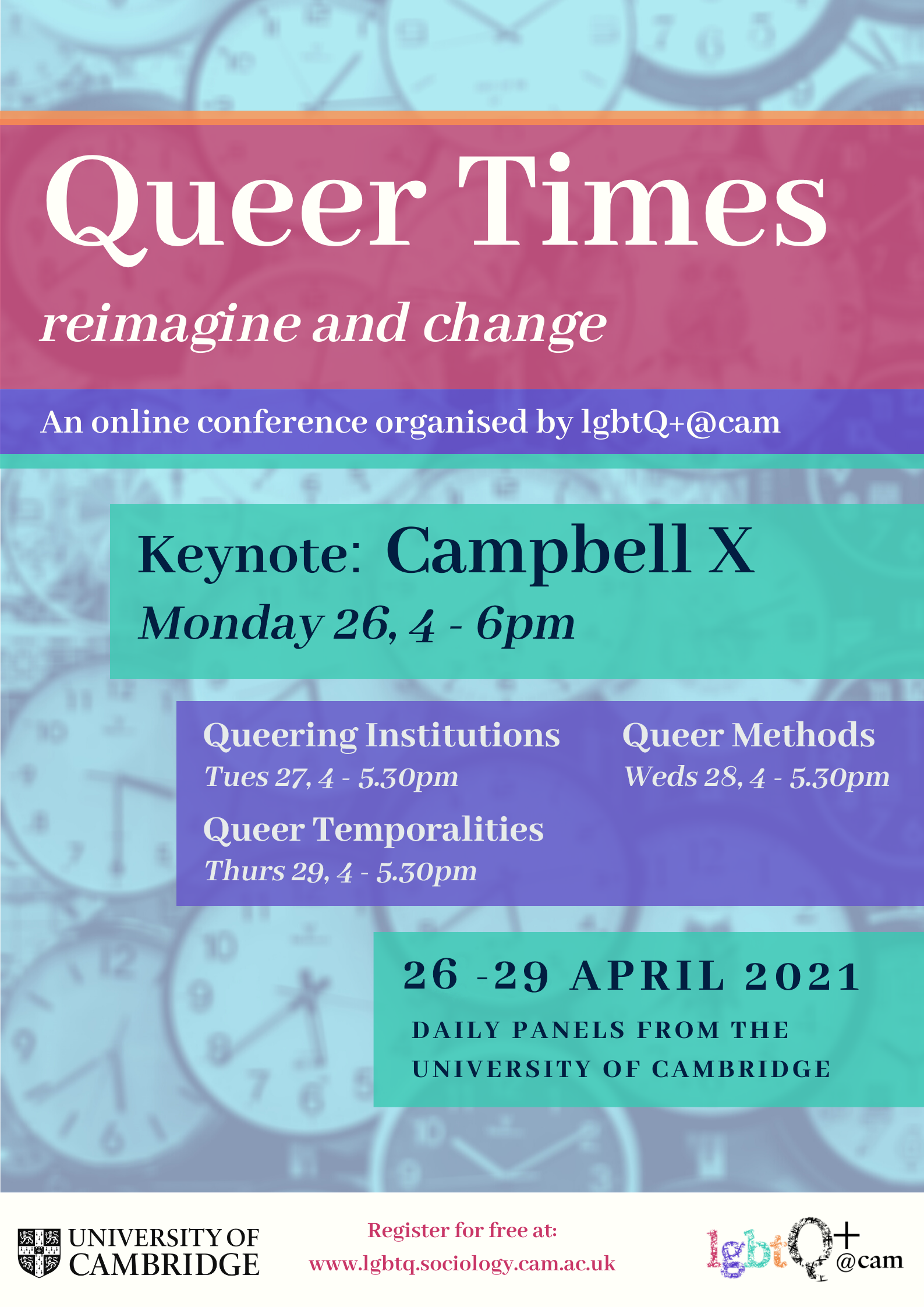Queer Times
April 26 - 29th, 2021: an online conference
Programme
Thank you for attending and supporting Queer Times 2021! We were overjoyed to host such a high calibre of scholars and experts, and to see such radical, incisive and powerful conversations flourish. Enormous thanks go to our contributors Campbell X, Topher Campbell, Waithera Sebatindira, Lola Olufemi, Christine Pungong, Siyang Wei, Abeera Khan, Hakan Sandal-Wilson, Naoise Murphy, Beatriz Santos Barreto, Eliz MY Wong, Geoffrey Maguire, Natasha Tanna, and Juliana Demartini Brito - and of course, to our esteemed audience, for engaging with and spurring on the discussions.
You can find captured livestreams of all panels on our Youtube channel here.
For all its other faults, our current era continues to witness rapid social, legal, political and cultural change in terms of how we live and experience queer as a condition, a perspective, an identity or a practice. Queer is all of these things and many more. It can be a way in, a way out, or offer another way of being altogether. We can think of queer as an alignment, a divergence or an in-between space. These are queer times. These continue to be times in which queer is at once too open and too specific, too undoing and too tight a fit, too vague and all too identifying. What to make of the all queerness all around us? Queer Times offers an occasion to think in particular about how we use the academy as a space in which to reflect on these questions. It is a conference at which we will be celebrating three years of intensive work by lgbtq+@cam to build research links across the university and beyond, including links between the academy and the archive, the museum, the cinema, the theatre and our built environment. Let’s be clear, we’re going to be vividly queer. This is an occasion to think not only about the content of our work – our concepts, analytics, semantics and critiques – but also our style of practice. What difference does a queer perspective make to the work we do – in our classrooms and our departments, in our disciplines and our faculties, and in our own work as individual writers, artists and creative thinkers?
In thinking about what it means to be critically aware agents of change within our own institutions, we are also asking what it means to be intersectionally queer. To the extent queer represents an interruption in the reproduction of the canon, the discipline, the department, the university, the academy – or the process of producing knowledge – it cannot be based on the reproduction of the same familiar privileges that hold familiar walls in place. Instead it must open up new corridors, and break through walls as well as ceilings. We look forward to the opportunity to reimagine change, and building transformational alliances at an event that will also celebrate queering the academy from inside and out.







